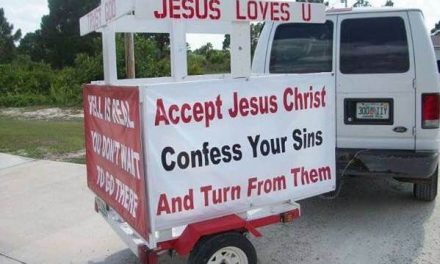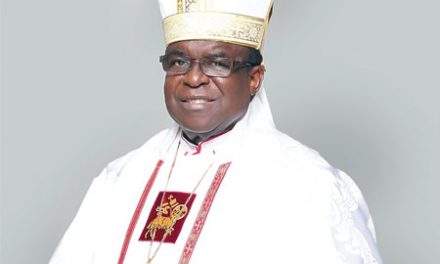The Jericho Road is both literal and metaphorical. The Jericho Road in the Middle East is about 18 miles northeast of Jerusalem, dangerous, winding, and a treacherous road. Metaphorically and with reference to the parable of the good Samaritan in Luke chapter 10, Jericho Road stretches around the globe and beyond the Middle East. Jericho Road is a hostile place, war zone, where there is violence; where there is oppression and where people are robbed of their dignity and freedom. The Jericho Road is always with us as families, churches and nations. The Jericho Road of EU Referendum, the Jericho Road of downtown Dallas shooting, the Jericho Road of the Refugee, the Jericho Road of racial discrimination, hatred and division. Jericho Road is about life, half dead marriage, half dead business, or life on the edge. Jericho Roads points to dead-end roads including the roads of separation and repression, where we assume that the ‘Remainers and Leavers,’ will go their own ways and where one group or one person thinks they have the right way, and the others do not.
The Good News is that Jericho Roads are not beyond God’s redemption and healing. The Jericho Roads of life are filled with different people including priest, the Levite – those who interpret the Law, the lay leaders, the teacher of the law, and the good Samaritan. The good Samaritan in this context is not just a professionally or liturgically correct priest or levite, but someone called by God with passion and burden for people and mission. According to Martin Luther King, Jr, ‘we are called to play the Good Samaritan on life’s roadside, but that will be only an initial act. One day we must come to see that the whole Jericho Road must be transformed so that men and women will not be constantly beaten and robbed as they make their journey on life’s highway. True compassion is more than flinging a coin to a beggar. It comes to see that an edifice which produces beggars needs restructuring.’ Prophet Amos provided a good model of a good Samaritan when ‘Israel was failing because its very prosperity had blinded the people to the demands of holiness, justice, and true worship demanded by God; and when priest like Amaziah, ‘leads to supporting the status quo rather than social change.’Amos name in Hebrew means ‘burden-bearer,’ was called and sent as God’s prophet to the northern kingdom of Israel during the reigns of Uzziah of Judah and Jeroboam ll of Israel. A good Samaritan is someone called and sent with burden for soul, to help people find God’s hope in the midst of their personal and corporate despairs. Amos could be tough and blunt, saying ‘things that no one wished to hear 2800 years ago, things no one much wishes to hear today.’ The Jericho Road? Where prophets like Amaziah opposes God’s message by mis-quoting and mis-representing it calls for a good Samaritan like Amos with burden to call people to Truth, repentance and healing.
The major challenge of the priest, levite and prophet like Amaziah is that not everyone practices what they preached. Jericho Road is a crossroad, where dreams are shattered and promises broken hence, the calling and ministry of a good Samaritan like Amos, could be a scary business of saving soul, a proclamation in word and deed. Just as God commanded Amos to ‘Go, prophecy to My people Israel,’ Jesus invites us, every moment of our lives, to set out on the dangerous and difficult journey on the road to Jericho to visit the poor, show Christ compassion and Truth, feed the hungry and comfort the troubled and heal the wounded. Beloved, every generation has its Amaziahs to deal with, and ours inclusive, especially when there is no ‘deeper reference for Scripture than to reckon ourselves at liberty to disguise its true meaning.’
Like Amos, we are called to remind our generation of the old truths about eternal life. People in Amos’s day were missing Kingdom living, they failed the plumb line measurement, the kingdom standard. The world is on the Jericho Road, and God is looking for good Samaritans like Amos and in Jesus’ footstep to ‘Go, prophecy to My people.’ The prophecy of Amos speaks to us today and is beyond the ‘demise of Israel in 722 B.C. and Judah in 586 B.C., or the destruction of the Jerusalem temple by the Roman armies in A.D. 70.’ Many of the conditions in Israel during Amos’s time are evident in today’s societies. Let us pray for Amos’s courage and the grace to stand against sin in our generation just as what l called the ‘Samaritan letter’ from the General Secretary of Conference, British Methodist church, Rev Gareth Powell encourages Methodist people to ‘bear the responsibility of speaking and acting for healing, reconciliation, and mutual respect.’ It is God’s desire that we follow the way of the good Samaritan, like Amos, the way that leads to healing and blessings along the Jericho Roads of our life and nation. The ultimate Good Samaritan, Jesus Christ, is coming back again the second time, just as he told the manager of the Inn, the church leaders to whom mission has been entrusted to take care of the wounded people. The Good Samaritan is coming back again to repay every one. Are you prepared?










Recent Comments